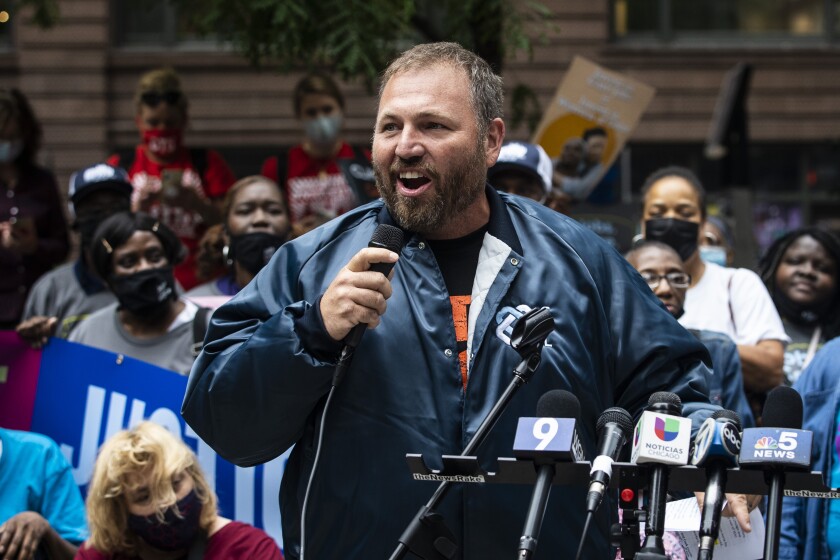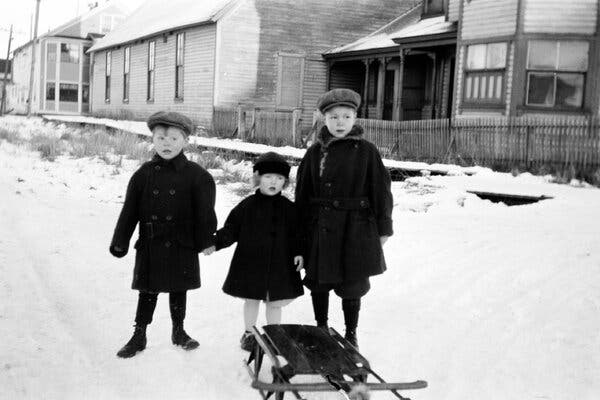Politics
Bob Reiter Advocates for Property Tax Increase Amid Budget Challenges

Bob Reiter, President of the Chicago Federation of Labor, urged members of the City Council on Friday to consider a property tax increase as a viable option for addressing budgetary challenges. In his remarks, Reiter emphasized the need to protect Black homeowners who have been disproportionately affected by what he described as “out of whack assessments.”
Reiter previously advised alderpersons prior to Mayor Brandon Johnson’s budget address on October 16, 2023, to prioritize avoiding layoffs and furloughs that would impact his members. He suggested that a property tax increase could provide a more stable revenue source. “We did not lay down the gauntlet and say that property taxes had to be the absolute… But what we did talk about is how other municipalities around Chicago have a larger tax levy than the city does,” Reiter stated in an interview with the Sun-Times.
As the political landscape shifted following Johnson’s budget address, the City Council faced complications. Property tax bills were delayed due to an overhaul of the county’s tax computer system, which caused significant increases in predominantly Black neighborhoods on the South and West sides of Chicago. A study by the Cook County Treasurer’s office indicated that the tax burden was shifting away from the economically depressed Loop, complicating the City Council’s decisions regarding tax increases as the 2027 mayoral and aldermanic elections approach. Despite these challenges, Reiter maintained that a property tax increase should remain an option.
“There’s things you can do to address that if you were to do a property tax increase,” he noted. Reiter highlighted the need for strategies to alleviate the financial strain on hardworking Chicagoans, particularly Black and Latino homeowners who have faced increased tax burdens. “Is there a way we can relieve property tax stress… and still look at revenue policy that can move us forward?” he questioned.
Reiter also referenced a previous initiative he supported, a $1.5 billion bill aimed at safeguarding the future of mass transit in Illinois. He suggested that similar measures could be applied to property taxes, implementing safeguards to protect residents from escalating rates while ensuring that city services are adequately funded. However, he did not detail what specific protective measures could be included.
Earlier in the week, the City Council’s Finance Committee rejected Johnson’s proposed $600 million tax plan, which aimed to address the financial contributions of the wealthy and corporations. The committee’s chair, Pat Dowell, expressed opposition to a corporate head tax, which has historically been a contentious issue. This development has led a coalition of more conservative and moderate alderpersons to explore alternative revenue-generating options that exclude a corporate head tax.
Among their proposals are a delivery fee of $1.25 for packages, a broader congestion fee, adjustments to parking taxes, and allowing liquor stores to open earlier on Sundays. Reiter expressed interest in the delivery fee, noting its potential to benefit local businesses. “I like ideas that promote policies that drive money back into local businesses,” he stated.
In a recent address to the City Club of Chicago, Ald. Matt O’Shea emphasized the need for internal budget cuts before considering any tax increases. He remarked, “I’m going to say something uncomfortable. Labor needs to be at the table.” Reiter countered that labor has been actively involved in budget discussions and highlighted his role in a committee that aims to control health care inflation.
The committee’s lack of consistent meetings over recent years has raised concerns for Reiter, who stated, “I can’t do it without a dance partner.” As the City Council navigates these complex fiscal challenges, the future of property taxation and its implications for Chicago residents remains a critical topic of discussion.
-

 Top Stories1 month ago
Top Stories1 month agoRachel Campos-Duffy Exits FOX Noticias; Andrea Linares Steps In
-

 Top Stories1 week ago
Top Stories1 week agoPiper Rockelle Shatters Record with $2.3M First Day on OnlyFans
-

 Top Stories6 days ago
Top Stories6 days agoMeta’s 2026 AI Policy Sparks Outrage Over Privacy Concerns
-

 Sports5 days ago
Sports5 days agoLeon Goretzka Considers Barcelona Move as Transfer Window Approaches
-

 Top Stories1 week ago
Top Stories1 week agoUrgent Update: Denver Fire Forces Mass Evacuations, 100+ Firefighters Battling Blaze
-

 Top Stories1 week ago
Top Stories1 week agoOnlyFans Creator Lily Phillips Reconnects with Faith in Rebaptism
-

 Entertainment5 days ago
Entertainment5 days agoTom Brady Signals Disinterest in Alix Earle Over Privacy Concerns
-

 Top Stories5 days ago
Top Stories5 days agoWarnock Joins Buddhist Monks on Urgent 2,300-Mile Peace Walk
-

 Top Stories7 days ago
Top Stories7 days agoOregon Pilot and Three Niece Die in Arizona Helicopter Crash
-

 Health2 months ago
Health2 months agoTerry Bradshaw Updates Fans on Health After Absence from FOX NFL Sunday
-

 Top Stories4 days ago
Top Stories4 days agoCBS Officially Renames Yellowstone Spin-off to Marshals
-

 Sports4 days ago
Sports4 days agoSouth Carolina Faces Arkansas in Key Women’s Basketball Clash

